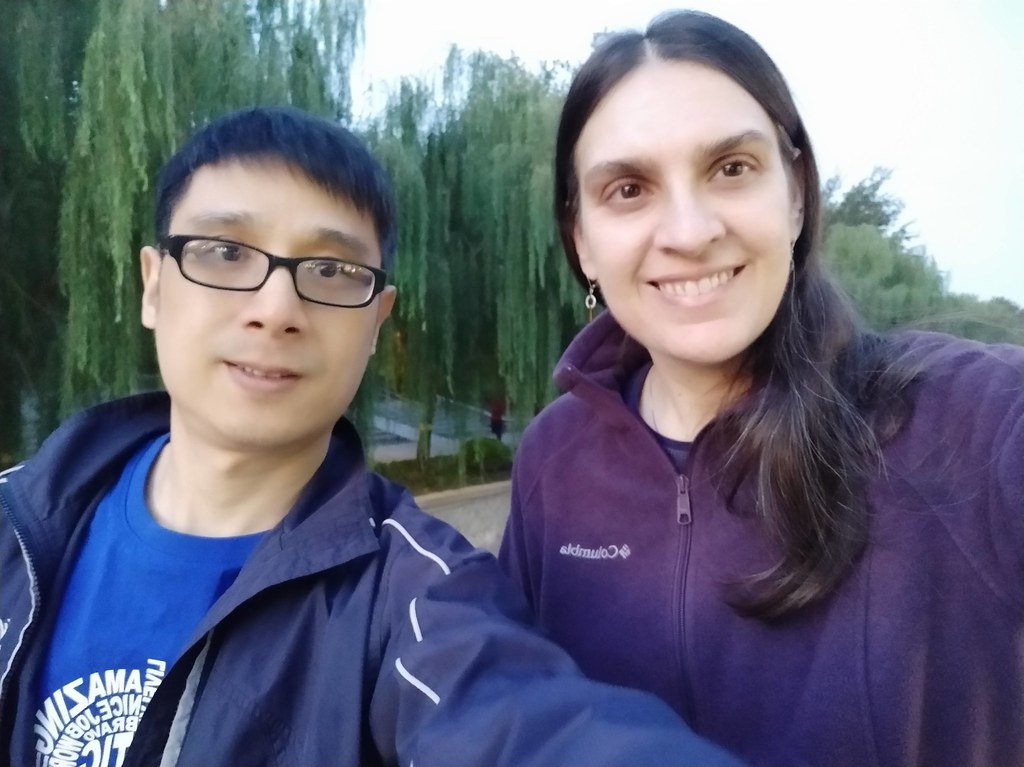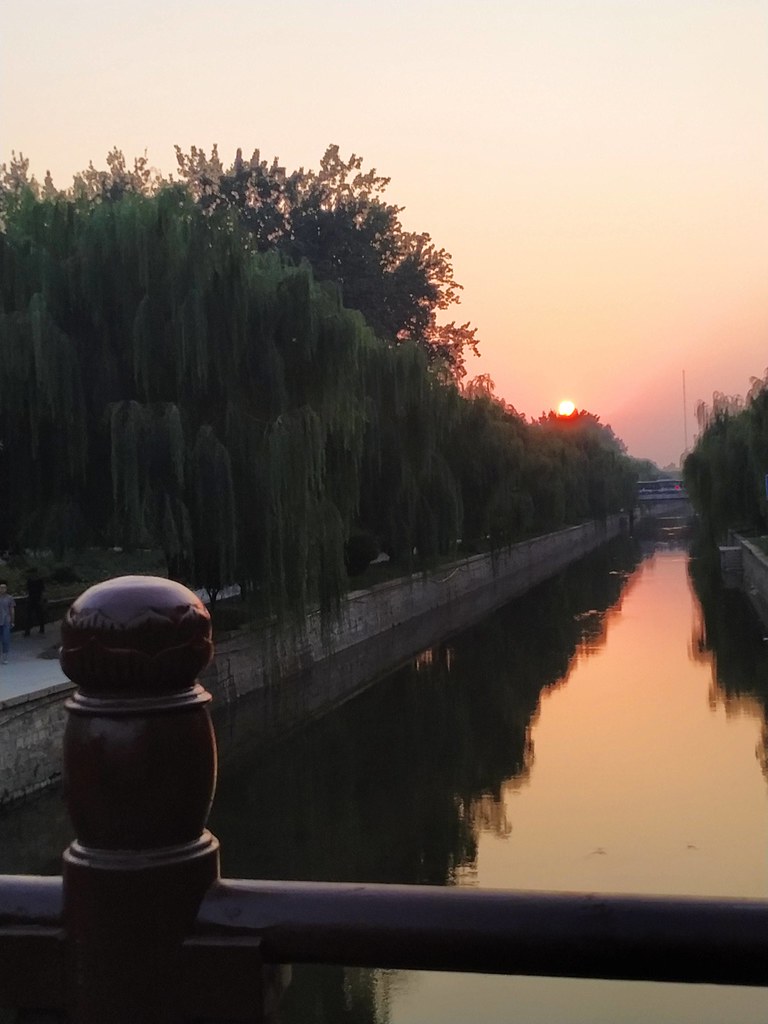As the novel coronavirus epidemic has gripped China, it has led to a cascade of life changes for everyone still here in the country, especially those living in Hubei or the city of Wuhan, the epicenter of the outbreak.
I reside in Beijing, which hasn’t been as hard hit as Wuhan or Hubei province or other regions. Nevertheless the ongoing epidemic has still touched my life in a variety of ways, and it has meant adapting to a new, albeit temporary, existence in the name of doing our small part to prevent and control this new virus.
For those of you outside of China wondering what it might be like to be here right now, as an average person, I wanted to share some of my own experiences as someone residing in Beijing.
I’ve been at work during most of the Spring Festival holiday – the news doesn’t take a vacation — which allowed me to see it all unfold.
First things first — why I’m staying put
As many foreigners living in China have engaged in the “do I stay or do I go” debate, I’ve never once entertained the thought. For me, it was never even a question – of course I would stay. My life and work are here, my husband is here, and this country has long been a second home to me. No matter the headwinds, Jun and I will soldier on together in China.
Furthermore, people (such as Michael Wester in a piece for the Beijinger) have noted that travel poses a far greater risk for exposure to the novel coronavirus — on the train, bus or taxi to the airport, in the airport itself and even on the plane. And some asymptomatic cases have emerged, which means someone who appears perfectly healthy could in fact carry and transmit the virus.
It also helps to keep the epidemic in perspective. Consider what the US Center for Disease Control has said about the seasonal flu in the US:
CDC estimates that influenza has resulted in between 9 million – 45 million illnesses, between 140,000 – 810,000 hospitalizations and between 12,000 – 61,000 deaths annually since 2010.
And here’s what the CDC said about the 2018-19 flu season in the US:
CDC estimates that influenza was associated with more than 35.5 million illnesses, more than 16.5 million medical visits, 490,600 hospitalizations, and 34,200 deaths during the 2018–2019 influenza season.
In any event, I am here to stay in Beijing. And remaining here means making a contribution, however insignificant, to support efforts to manage the outbreak, which involves complying with the many changes and measures now in place because of the epidemic.
Avoid going out, crowded places or unnecessary gatherings
News reports and public service announcements constantly remind us to not meet up or go to crowded places, and to generally avoid going out unless you absolutely have to. Because of this advice, I actually canceled a get-together at my apartment that I had planned with an old friend.
Many people in China have had to do the same, and it’s tough at this time of year, because visiting family and friends is a holiday tradition in Chinese culture known as bainian – but TV spots have suggested doing any such meetups online, such as a video chat.
Most cities have made the choice relatively easy – for example, Beijing canceled all of its temple fairs during the holiday, closed up nearly every major tourist attraction, and shuttered theaters to stage performances and screen movies.
Games in China national soccer and basketball leagues have halted.
Even my Catholic diocese here in Beijing has suspended all masses until further notice. Some people in a local faith community chat post the week’s readings for church and other suggestions for worship in lieu of going to church.
At the same time, recently local governments have encouraged people to work from home, and have delayed the start of school until later in February or even until March.
For me, abiding by the recommendation to avoid going out, crowds and gatherings means that I only spend time in the office and at home. Since I live just around the corner from the office, getting to work is still very easy and involves little chance for coming into contact with lots of people. As it is, I generally encounter only a handful of folks on the streets when I make the short walk between my apartment and the office.
I don’t mind having to stay in and avoid going out or meeting up with people. We all must make some small sacrifices to do our part to support the fight against the epidemic. And besides, I’m quite the homebody, loving an excuse to enjoy a movie night at home, read a book, write or cook up something delicious in the kitchen (like vegan carrot cake….mmmm!).
Temperature checks to enter main work building, community
During this outbreak, everyone must have their temperature checked in order to enter the main work building or our community. The checks help to detect one of the major symptoms of the virus – fever. Nobody with a temperature of 37.3 degrees Celsius or higher can come in.
If you register a fever, you would have to visit one of the designated clinics in the city that receives patients with fever and/or other potential symptoms. One of those clinics sits just a 10- to 15-minute walk down the street, so if I ever actually had to go, I could easily make it there on foot.
But of course, nobody really wants to get that kind of “firsthand hospital experience”. I don’t really fear for my life since I’m healthy — but I also don’t relish the idea of ending up isolated in a hospital for any period of time!
That’s why I have stepped up my vigilance to ensure I don’t get sick and end up developing a suspicious fever or other symptoms. Mostly, that means doing things like washing hands as much as possible, not touching my face, and paying more attention to hygiene in general.
I still continue my trusty “walking program” indoors, together with Jun, thanks to an exercise video.
Also, as l still work these days, I try to take it easy as much as possible and rest more in every way possible. (It’s a great excuse for me to indulge in some herbal additional foot baths for relaxation and well-being!)
Health reports to work unit
Human resources has asked us to also report our health and situation to them every sday starting late last week. We need to tell who we’re living with, where we are, whether we’ve had any connection to Hubei province (the epicenter of the virus), whether we have a normal temperature, and how we’re feeling. This appears to be common practice at other work units and even schools, based on what other people in chat groups have reported.
As odd as it might feel at times, I understand the measures – it’s a way for an organization to ensure early detection and quarantine, if necessary.
No more delivery guys allowed inside community
Before, delivery guys would bring any packages straight to our apartment door. But in an effort to prevent the spread of the virus, anyone in the community receiving a delivery must pick it up at the gate. Again, it’s understandable, even if it creates some inconvenience – and could mean making two trips just to bring your order back.
In some cases, I’ve read that other communities in places in China have required no contact between people for any deliveries (in other words, the delivery guy must leave the goods at the gate and not hand them directly to you — after the person leaves, then you can retrieve your order). And some areas of China with more severe outbreaks have chosen to temporarily suspend deliveries altogether.
We feel very grateful deliveries to still receive deliveries here in our community in Beijing – including groceries and vegetables. We did our most recent produce shopping via delivery and this allowed us to get groceries without having to go to a market, which again helps to reduce person-to-person contact, an important way to prevent the novel coronavirus.
Face masks in short supply, making do with what you have
Once Wuhan and other cities in Hubei went into quarantine, it set off a wave of panic shopping on masks, leaving many – including me – with few to wear.
The official guidance suggests wearing a mask when you go out and many have been recommending disposable masks. But if you don’t have many, you can’t afford to throw them out. And if you have just a few, you don’t want to wear a potentially dirty face mask multiple times. Besides, a recent WHO report said:
Wearing a medical mask is one of the prevention measures to limit spread of certain respiratory diseases, including 2019-nCoV, in affected areas. However, the use of a mask alone is insufficient to provide the adequate level of protection and other equally relevant measures should be adopted.
I figure, having something to cover my face outside, as a courtesy and to abide by the official guidance, will do for now.
I tie a large winter scarf around my head to cover my nose and mouth area. It works perfectly and, as a bonus, I can regularly wash it for good hygiene.
At the same time, the shortage in China has resulted in a lot of ingenious face mask alternatives emerging, some with hilarious results – masks made from instant noodle containers, plastic water jugs, plastic bags, pomelo/grapefruit rinds, T-shirts and, yes, even a thong.
A very empty office
At the office, we have easily at least 30 or 40 people on our floor, if not more. But these days, I can generally count on one hand everyone I’ve seen here.
Why are most of my colleagues not here? Besides heeding the advice to avoid crowding in offices, the company has, as an extra precaution, also asked everyone who left Beijing during the holiday to quarantine themselves in their homes for 14 days before coming to work. Given that most of my colleagues are either not from Beijing or like to travel during the holidays, that has forced the vast majority of them into this self-quarantine situation.
Still, I see a silver lining — at least I don’t have to queue up at the women’s bathroom in the office right now.
—
Don’t worry about me and Jun — we are doing fine here in Beijing, as I reported earlier this week, and have adjusted well to the new situation.
In the meantime, until things change, I will continue to work, stay positive and pray for the people on the front line as well as the patients and everyone else directly affected by the virus. Stay strong, Wuhan!
Are you living in China right now and experiencing the epidemic? Or do you know someone who currently is? Share those experiences in the comments.






















